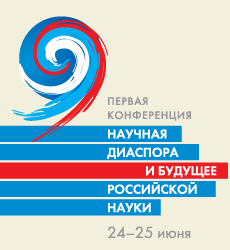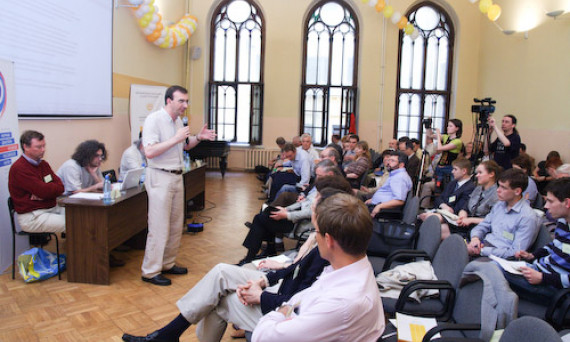 Can Russia preserve its academic traditions, in particular in the fundamental sciences? The answer to this much-discussed question is not obvious. Old formulas and ways of thinking are clearly no longer of use: science has changed unalterably in recent years, and no rash decisions by state authorities will help to find a suitable answer to this question.
Can Russia preserve its academic traditions, in particular in the fundamental sciences? The answer to this much-discussed question is not obvious. Old formulas and ways of thinking are clearly no longer of use: science has changed unalterably in recent years, and no rash decisions by state authorities will help to find a suitable answer to this question.
One of Russia’s main problems is how to retain talented young people. Russia’s large community of academic diaspora can play a significant role in this process; many scientists studied and developed professionally in Russia before leaving for other countries, where they achieved great success, while still retaining an interest in the advancement of independent Russian science. This conference will bring together for the first time members of this group to discuss how to restore Russian science to its position of prominence and recognition on a global scale.
We understand how important and at the same time delicate this issue is, and how many people are interested in it. In the course of preparation for the conference, we tried to cover as wide range of people as possible and reflect different points of view, but unfortunately, time constraints and limitations in the number of participants have not allowed accomplishing it in the proper amount. Conference proceedings will be published and uploaded in the Internet and we hope they will start a broad discussion, aimed at the main goal of the conference – intensifying of cooperation among scientists from different countries with Russian scientists and, primarily, strengthening of the contacts with the Russian academic diaspora in such areas as education, research and information exchange.
The mission of the conference is to discuss the paths, possibilities and circumstances for maximizing the intellectual potential of the Russian academic diaspora to advance the development of Russian science and higher education.
The initiators of the conference include representatives of both parts of today’s geographically divided Russian scientific community. They will have a voice in deciding the future development of Russian science. Representatives of state authorities (the Ministry of Education and Science) will be also involved in discussions and conversations about practical recommendations; however, they will not determine the conference agenda.
To present the widest possible spectrum of opinions and interests of the entire community, researchers have been invited from a variety of social- and natural-science backgrounds.
The goal of the conference is to explore the question of legitimating the academic diaspora and its partner relations with Russian scientific and educational institutions, and to formulate the main principles and forms of long-term cooperation and involvement by representatives of the diaspora in the growth of viable research communities and in supporting promising Russian scientists.
These principles and forms need to be discussed. For example, many believe it would be reasonable to create a Center of Advanced Academic Research, based on the model of similar institutes of advanced studies in leading countries. Alongside the development of innovative research projects, such a center could contribute to training a new generation of young Russian scientists (though lectures and academic supervision of the postgraduate studies of young Russians at overseas universities).
The organizers also propose to discuss the possibility of the creation of an Expert Council or Scientific Council, which would seek to further develop cooperation between Russian scientists and their colleagues abroad.
Conference programme (pdf 103KB)
List of speakers (pdf 122KB)
List of participants (word 83KB)
Welcome Speech of Organizing Committee (pdf 111KB)
Organizing committee:
Oleg Kharkhordin (![]() Mail) – Chairman (Rector of the EUSP, PhD University of California, Berkeley)
Mail) – Chairman (Rector of the EUSP, PhD University of California, Berkeley)
Anatoly Vershik (Doctor of Physical and Mathematical Sciences, Head Researcher of the V.A. Steklov Institute of Mathematics)
Konstantin Severinov (Professor at Rutgers University, Director of the Laboratory of the Institute of Molecular Genetics of the Russian Academy of Sciences)
Konstantin Sonin (Professor of the New Economic School)
For more detailed information please see the conference page at www.eu.spb.ru/diaspora























